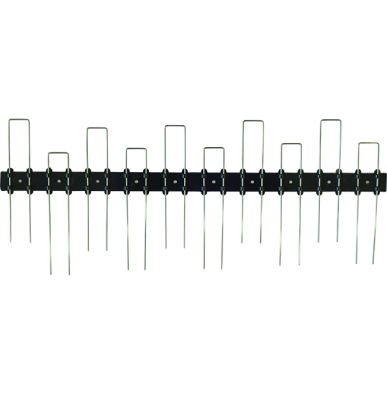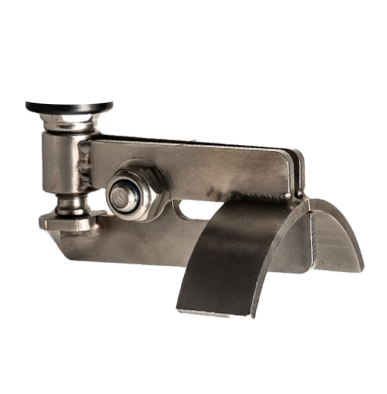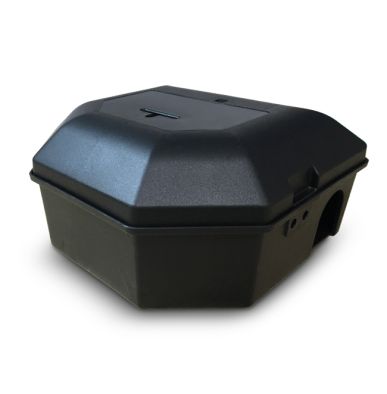As a pest control professional, your equipment is the backbone of your business. Whether its a Sprayer, fogger or duster, they are essential tools for effective pest management, and you need to ensure they are kept in top condition to ensure they work efficiently and last longer.
Proper, regular maintenance ensures that your equipment functions as it should and delivers consistent performance and accurate application rates, whilst helping to prevent costly downtime and repairs.
Equipment like a sprayer, fogger, or duster, is designed for precision and reliability. Over time, however, these tools can degrade due to wear and tear, leading to:
- Decrease equipment lifepsan
- Reduced efficiency
- Clogs and leaks that hinder spraying or dusting
- Inconsistent fogging that may leave areas untreated
- The need for expensive repairs or early replacements
- Longer running jobs
We take a look at the best practices for maintaining sprayers, foggers, and dusters, so you can maximize their lifespan and avoid unexpected downtime. By following these simple maintenance tips, you’ll be able to provide a consistent, high-quality service and save yourself some time and money.
How do I complete Maintenance on my Sprayer?
Whatever sort of pump you use, whether it may be a Gloria or a Mesto sprayer, regular care is vital for optimal performance. Here are some of our best tips on how to care for your sprayer:
Inspect Seals and O-Rings:
- Ensure your sprayer’s seals and o-rings are in good condition and have been lubricated. We recommend Silicone-based lubricant to help prevent wear and ensure the sprayer’s airtight seal, prolonging the life of the equipment.
- The chemicals in pesticide use will corrode the seals in your sprayer over time, meaning you should check the condition of these seals regularly. Replacing these seals is an easy and cost-effective way to prolong a sprayer’s lifespan. We have a range of both Mesto and Gloria sprayers available.
Flush the Tank Regularly:
- After every use, rinse the tank with clean water to remove leftover pesticides. Allowing chemicals to sit inside the tank can cause clogs, corrosion, or damage to internal components.
Check Pressure Levels:
- Ensure that the pump is maintaining the correct pressure for consistent spray patterns. Low pressure might indicate a faulty valve or a clogged hose that needs immediate attention.
Inspect and Clean the Nozzles:
- Check the nozzles for buildup or debris, as clogged nozzles can reduce spray accuracy. Soak them in warm, soapy water and use a soft brush to gently clean them.
Clean the Filters:
- Sprayers often have filters to prevent debris from clogging the nozzle or pump. Make sure to remove and clean these filters regularly to maintain steady spray pressure and avoid blockages.
How do I complete Maintenance on my Fogger?
Foggers are invaluable for treating large areas and are often used with insect killers to treat flying and crawling insects, like mosquitoes or fleas. However, a malfunctioning fogger can reduce the effectiveness of your treatment and leave you with unhappy customers. Keeping it in prime condition is critical, here are our best tips:
Clean the Fogger Nozzle:
- The nozzle can easily become clogged with residual chemicals, reducing the flow and distribution of the fog. After each use, disassemble the fogger nozzle and clean it with a soft cloth or brush.
Check for Leaks:
- Regularly inspect hoses, tanks, and seals for any signs of leaks. Leaks can cause uneven pesticide distribution and lead to expensive repairs if not caught early.
Test Fog Output:
- Periodically test the fog output to ensure your machine is working effectively. If the fog is inconsistent, it may indicate a clogged nozzle or a malfunctioning pump.
Store in a Cool, Dry Place:
- Foggers should be stored away from extreme temperatures and moisture to prevent damage to electrical components and corrosion of metal parts.
How do I complete Maintenance on my Duster?
Dusters can be used in conjunction with a range of powder insecticides to reach into any cracks or crevices. However, you need to maintain your duster to ensure that you apply dust precisely and evenly. Here are some of our tips for duster maintenance:
Empty After Each Use:
- Don’t leave powder inside the duster after a job is done. Leftover dust can clump and clog the duster, making it harder to clean and less effective in future treatments.
Check and Clean the Applicator Tip:
- The tip can easily become clogged with dust. Regularly clean it by removing debris or powder buildup with a soft brush.
Lubricate Moving Parts:
- Lubricating the moving parts (such as the plunger) with a non-petroleum-based lubricant will keep the duster functioning smoothly.
Inspect for Cracks or Damage:
- Over time, the duster’s body can develop cracks or wear out from constant use. Check for any visible damage and replace parts or seals if necessary to maintain pressure.
Pest Control Equipment Maintenance Tips
While specific maintenance routines for a sprayer, fogger, or duster is important, there are also general upkeep practices we recommend that can help prolong the life of all your pest control equipment.
- Keep Equipment Clean: Wipe down your equipment after each use to remove pesticide residue, dirt, or moisture that could cause rust, corrosion, or blockages.
- Regular Inspections: Create a checklist to routinely inspect your equipment for signs of wear, cracks, or malfunctioning parts. Addressing issues early can prevent more serious problems.
- Proper Storage: Always store your equipment in a clean, dry area. Avoid exposure to extreme temperatures, moisture, or direct sunlight, as these can damage components.
- Replace Parts as Needed: O-rings, seals, nozzles, and hoses should be replaced regularly to ensure your equipment performs at its best. Don’t wait until the part fails entirely.
- Follow Manufacturer Guidelines: Always refer to the manufacturer’s manual for maintenance recommendations. Each brand or model may have specific needs for optimal performance.
If you know the model of your sprayer, fogger, or duster, you can visit the manufactures website and they will often have a downloadable hand books that will help you do maintenance. Visit the links below to view these handbooks:





“ You cannot fault the service from 1ENV. I ordered at 9am on Monday. Order was with me 7:30am Tuesday! I was getting ready to kick off at the driver parked across my drive until I realised it was for me! Fantastic service & products unique to them. Thanks again. ”